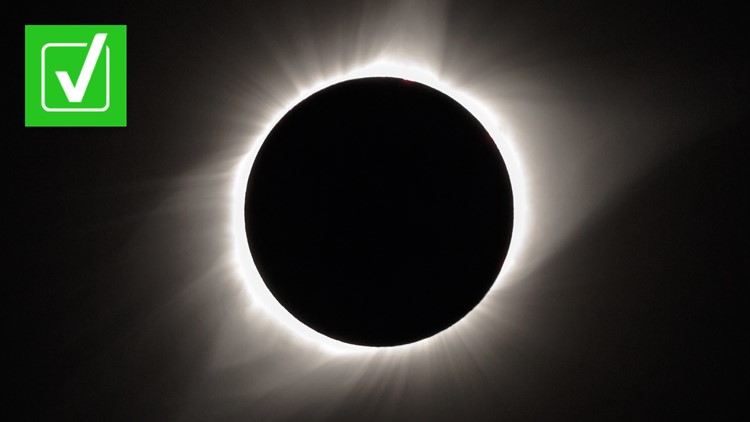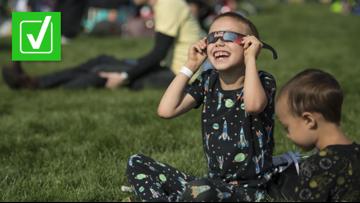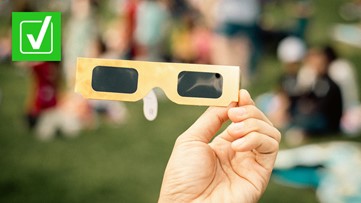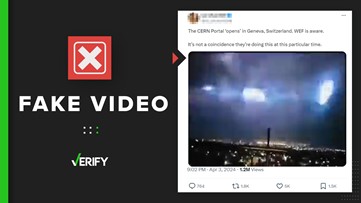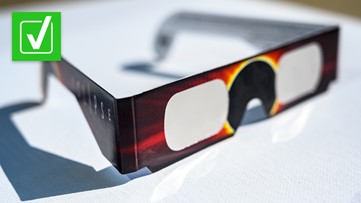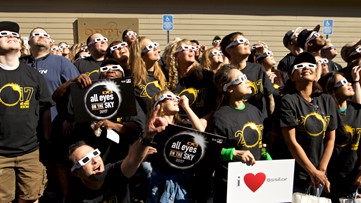Millions of Americans will be treated to a total solar eclipse on April 8, 2024, when the moon will completely block out the sun for a few minutes over parts of the U.S.
On June 10, 2021, a partial solar eclipse was visible in parts of the country, although it was met with significantly less fanfare than the total eclipses in 2017 and 2024. One person who almost missed that eclipse was music artist Bonnie Tyler, most well-known for her 1983 song "Total Eclipse of the Heart," who only learned about the eclipse because of a spike in her notifications.
THE QUESTION
Is there a spike in interest in "Total Eclipse of the Heart" whenever there’s a solar eclipse?
THE SOURCES
iTunescharts.net, an unofficial archive of iTunes’ daily charts
THE ANSWER
Yes, there is a spike in interest in Bonnie Tyler’s “Total Eclipse of the Heart” whenever there’s a solar eclipse.
WHAT WE FOUND
Google Trends data show that "Total Eclipse of the Heart" receives a spike in search interest in the United States whenever a solar eclipse is visible in large parts of the country. The largest spike was in August 2017, when a total solar eclipse moved across the United States.
This year’s solar eclipse is no different. Search interest for the song has steadily risen over the past month, especially in the final week before the total eclipse.
So people search for the song during the eclipse, but are they actually listening to it? At least on YouTube, they are.
Google Trends’ YouTube data show the song reaches the peak of its attention during solar eclipses. One of its highest peaks was during the total eclipse of 2017, although it also received a bump in search interest during a partial eclipse in October 2023 and is seeing another spike in interest in the leadup to the 2024 eclipse.
The song also receives a spike in streams on music apps during solar eclipses. On Aug. 21, 2017, the date of the last total solar eclipse in the U.S., "Total Eclipse of the Heart" made it to 173 in Spotify’s global daily top 200 and made it to 63 in the United States. It was the 37th most viral song globally that day and the fourth most viral song in the United States.
The song cracked none of those charts the day before, on Aug. 20, 2017.
On April 5, 2024, “Total Eclipse of the Heart” re-entered the iTunes daily top 40 pop songs in the U.S. at 18, according to an unofficial archive of iTunes charts.
A total solar eclipse happens when the moon passes between the sun and Earth, completely blocking out the sun, according to NASA. There are also annular solar eclipses, when the moon is farther away from Earth and leaves a ring of light from the sun behind it, and a partial solar eclipse, when the moon and Earth are not perfectly lined at the time the moon passes between the sun and the Earth.
The most dramatic spike in the song’s popularity is during total eclipses, which are rare. However, sometimes “Total Eclipse of the Heart” gets a bump during a partial or annular eclipse, like it did in October 2023.
And, in case you’re curious, Google Trends shows Carly Simon’s "You’re So Vain," which includes the lyrics “you flew your Learjet up to Nova Scotia to see the total eclipse of the sun,” also reached peak interest during the August 2017 solar eclipse.
Days ahead of this year’s eclipse, search interest in “You’re So Vain” is beginning to rise in Nova Scotia, according to Google Trends. The eclipse’s path of totality — which is where people will see a total eclipse instead of a partial eclipse — just misses Nova Scotia.
Maybe Nova Scotians are listening wistfully at what could have been?

